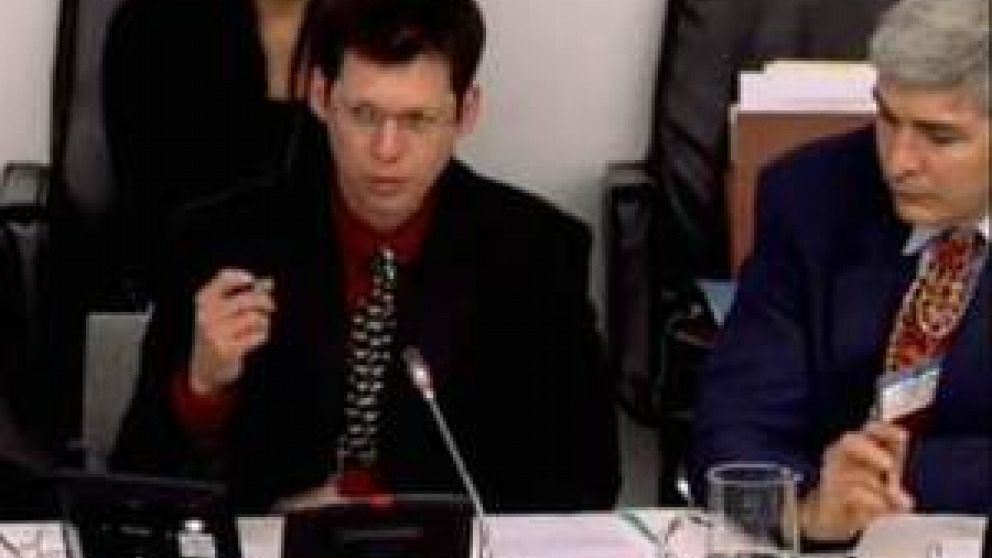Mark Lawrence addresses the UN General Assembly
18.04.2012


Potsdam, April 18, 2012. Dr. Mark Lawrence gave a presentation entitled “The Anthropocene – Humans in the Earth System” as part of a panel discussion addressing the United Nations General Assembly’s theme of scientific findings on how human activities are affecting the Earth system. The interactive dialogue was held at the UN’s North Lawn Building in New York in commemoration of International Mother Earth Day, as part of the UN’s on-going preparations for the UN Conference on Sustainable Development (Rio+20) in Rio de Janeiro, Brazil, next month.
Dr. Lawrence’ participation in the Interactive Dialogue of the General Assembly on Harmony With Nature marks a new development at the UN, because scientists have rarely addressed the General Assembly directly before. Sha Zukang, Secretary General of the 2012 UN Conference on Sustainable Development, stated that “science and technology must now serve to move us onto a more sustainable growth path that brings prosperity to all, while helping us remain an integral part of nature.”
Dr. Lawrence addressed the delegates by indicating that scientists can “offer guidance by informing carefully about the connections between actions and consequences – to help develop a more holistic understanding of the anticipated benefits and risks of various policy options,” and gave a brief overview of Earth system science and modeling in this context.
Pointing out that we are now in the geological epoch known as the “anthropocene,” Dr. Lawrence indicated that one of the major future challenges will be the topic of climate engineering. Here he broached the necessity for science to be aware of its own responsibility in research, especially while our understanding of climate engineering is still in its infancy. “We should realize that the risks involved are not only physical – there are also risks for how the pursuit of these measures might influence the further development of our environmental consciousness, our understanding of our role in nature.”
Dr. Lawrence appeared on the moderated panel discussion with five other experts in science and economics: Owen Gingerich, Professor Emeritus of Astronomy and of the History of Science at Harvard University, Pat Mooney, executive director of the international civil society organization ETC Group, Joshua Farley, ecological economist, and Brian Czech, founder and president of the Center for the Advancement of the Steady State Economy.
Director of the IASS cluster Sustainable Interactions with the Atmosphere, Dr. Lawrence concluded with the message that the UN should act on transdisciplinary knowledge: “Finally, I’d like to suggest that it will be very important to develop close interaction between researchers and stakeholders, to produce the knowledge that we need for future sustainable development.”
The UN’s interactive dialogue is intended to promote an exchange of ideas and experiences from multiple perspectives, with particular attention to the contribution of science and economics. It is meant to serve a precise and accurate diagnosis of the negative impacts of human activity on the Earth System, in particular relative to its regenerative capacity; it also addresses institutional responses to catalyze science for sustainable development.
The webcast of the dialogue (in which Dr. Lawrence’s presentation begins at 55:30) is available at:
http://www.uncsd2012.org/rio20/index.php?page=view&nr=840&type=13&menu=23
New project website:
http://www.harmonywithnatureun.org
Report to the Secretary General:
http://www.un.org/ga/search/view_doc.asp?symbol=A/67/317